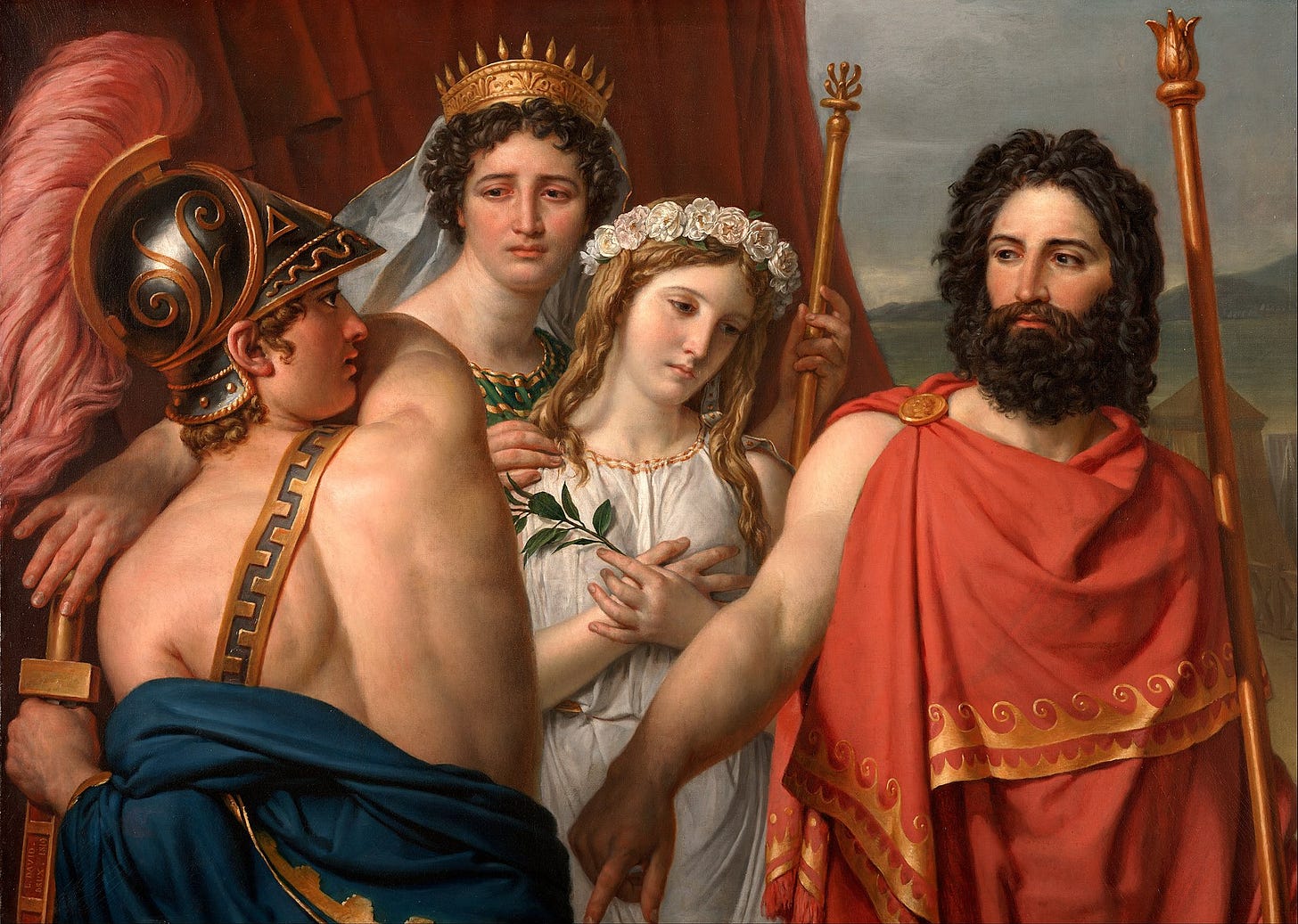Homeric Culture: The Foundation of Greece
Understanding the culture and values of Homer's Iliad and Odyssey.

Homer, the author of the Iliad and the Odyssey. Who was Homer? What do his poems describe? No one really knows. Despite this uncertainty, the corpus of Homeric literature has still served as the immutable foundation of Western civilization for almost 3,000 years.
When did Homer write?
Modern scholars deal with the Homeric Question, which explores these mysterious works. Homer’s works probably came from centuries of oral tradition. They thus reflect various stages of Greek history, ranging from Bronze Age Mycenae to the Greek Dark Ages.
There are numerous discrepancies between the society described by Homer’s poems, and what we know about Bronze Age Greece. The society described in the Homeric poems is illiterate. But Mycenae had at least some people who knew how to write. In Homer’s works, chariots were the equivalent of modern-day tanks. They were used to break up the infantry lines of the enemy. Chariots would race toward the soldiers, who would be forced to break their lines. In reality, Bronze Age chariots were little more than taxis. Sometimes, they were used for drive-by killings. But later generations of Greek writers forget how these chariots were used. The Mycenaeans buried their dead in graves. The Greeks in Homer’s poems, by contrast, incinerate the bodies of the dead. They practiced cremation. This is a very significant difference between Homer’s poems and Bronze Age Greece.
Religion
Like almost all ancient societies, Homeric Greece was polytheistic. It had a vast pantheon of deities. The Hebrews were probably the first to be monotheistic, although the Egyptians may have been the truly first.
But there was something unique about Greek religion. The Greeks believed that they themselves came from the same race of the gods. Almost no other society made such an ambitious claim. Homeric characters have epithets of divinity, such as Dios (“god-like”).
The Greeks were not god-fearing, or god-loving. They saw themselves as literally part of divine lineage. But to the Greek mind, there was one area that humans were unequivocally inferior to the gods: mortality. The gods were immortal, but humans suffered death. Mortality of the human being is the greatest reality for the Greeks. Men were not as strong as the gods. This characterized the tragic view of human nature, found in Greek literature and culture. This view appears quite prominently even in the ancient works of Homer.
Greek religion was radically different from that of other ancient peoples. Most ancient peoples saw humans as completely insignificant. Humans were compared to dust or dung. Death was seen as insignificant, because humans didn’t have any value to begin with.
Homeric religion did not necessarily have a concept of a conscious afterlife. It was believed that death would be a numb, underworld existence. Only the worst individuals would receive some tortures at the hands of the gods, such as the outlandish punishments of Tantalus.
The Greeks had an extremely negative view of death, but they still boldly insisted on the value of being alive. This was at the heart of the Greek tragic perspective. When Odysseus approaches Achilles in the underworld, Achilles explains how, in death, he has lost all of his worldly glory from life.
Politics
Homeric literature tends to favor some form of aristocracy, or rule by the best. Aristocracy by birth was the norm. Thus, the emergence of democracy in Greece was a highly unusual, unorthodox departure from Homeric tradition. But the roots of Greek anti-monarchism do surface somewhat in Homer.
The political theories of the Greeks, however influential to modern times, were vastly different than modern ideas. The Greeks lacked any modern political concepts of progress and individualism. They emphasized the polis as more important than any particular individual. They had absolutely no concept of natural or god-given rights.
The Homeric hero
The Greeks generally rejected hedonism or any subjective theory of ethical values. They strongly believed in the notion of fate or chance, and didn’t believe in divine providence. Chance, not virtue, determined the quality of one’s life; that was the view of Homer.
The Homeric hero was designed as an ideal to cope with the tragic inevitability of death. To Homer, the best way to conquer death was by accomplishing great deeds in this life, which would achieve personal immortality in the form of one’s legacy. This was summed up by the Greek phrase aien aristeioi (“always be the best”). Heroism, in Homeric terms, does not necessarily mean moral virtue. It simply meant being the strongest, the most competent, the best-performing at any given activity, and the most-admired.
In order to be a hero, the Greeks felt, you had to be better than other people by comparison. Some people had to be worse than you. Life was seen as a contest, or agon. Their society was filled with a zero-sum competition for worldly glory.




